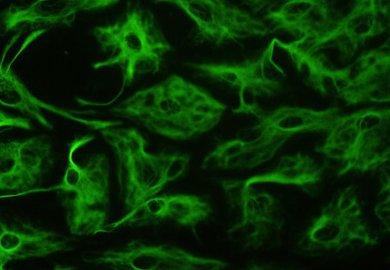Uric Acid Causes Reduced Nerve Damage
 A new study explains how uric acid causes chemical processes in the body that might help damaged nerve cells.
A new study explains how uric acid causes chemical processes in the body that might help damaged nerve cells.
The study explains that scientists have known about the beneficial effects on nerve cells, but have not understood how this works.
When spinal cord injury occurs, there are 2 types of damage. The first is physical trauma. The second is chemical damage as a substance called glutamate builds up in response to the damage. Glutamate is vital to healthy nerve function, but too much can choke other vital nerve cells to death.
Astroglia-mediated effects of uric acid to protect spinal cord neurons from glutamate toxicity looks at the processes involved. Professor Firestein, and others, reveal how uric acid works with other specialized non-neuronal support cells called astroglia (or astrocytes). It is this combination that promote transporters that combat excess glutamate.
Of course, this does not really help the gout sufferer. All we know is that excess uric acid causes gout pain. It does underline the usefulness of uric acid though.
The fact that uric acid is needed by the body to help prevent damage from other chemicals might hold clues as to why we produce excess uric acid in the first place.
A quick note of thanks to Professor Firestein for pointing out that atroglia are not nerve cells (my mistake), but support cells.
She also affirms the usefulness of uric acid. We always benefit from low levels of uric acid, so we should never seek to eliminate it.